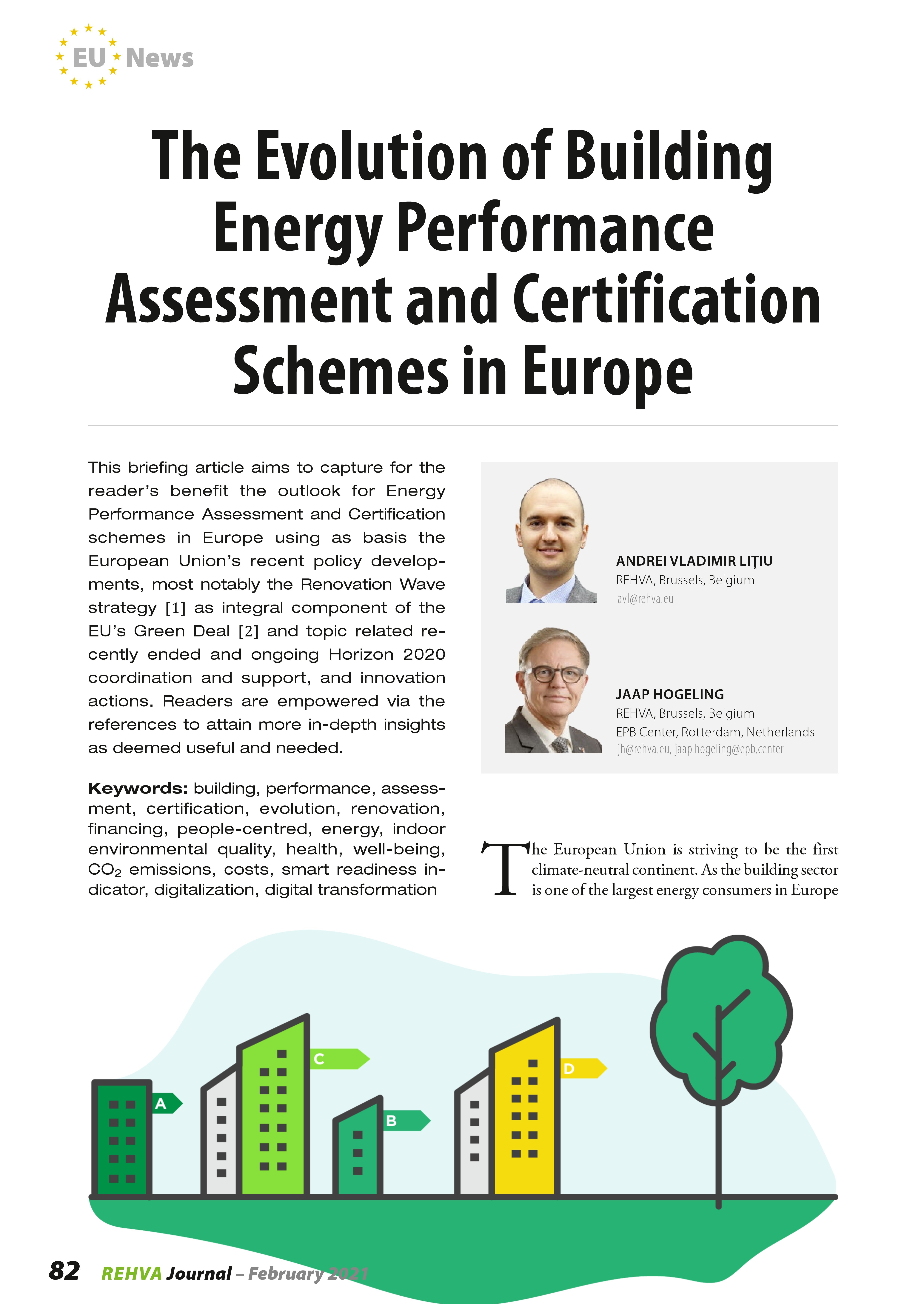

News
REHVA Journal | The Evolution of Building Energy Performance Assessment and Certification Schemes in Europe
 READ IN FULL THE REHVA JOURNAL ARTICLE
Check out the entire February 2021 issue of REHVA Journal
READ IN FULL THE REHVA JOURNAL ARTICLE
Check out the entire February 2021 issue of REHVA Journal
What’s at stake for Energy Performance Certificates?
According to Building Performance Institute Europe [9], these are the most salient aspects in the EU Renovation Wave Strategy reinforcing the role of Energy Performance Certificates:
• Introducing mandatory minimum energy performance requirements (MEPS): When gradually phased in, enabled by well-functioning energy performance certificates (EPCs) and financing, MEPS can successfully tackle the worst performing buildings.
• More effective EPCs, integrated with a digital building logbook, building renovation passport, smart readiness indicator, Level(s): As quality and increased availability of EPCs are necessary to guide occupants’ choices, the Renovation Wave suggests reinforcing and strengthening existing EPCs, introducing a more standardised format for digital use and improved accessibility, supported by smart technologies.
• Better data for buildings: Effective building policies and measures can only be designed and implemented with consistent and reliable data, for example on energy consumption or environmental performance. The Renovation Wave proposes the introduction of a digital building logbook as a common repository for all relevant data over the entire lifecycle of the building, and to strengthen data collection through an updated EPC framework, with stringent rules on availability and accessibility of databases. The European Commission will also explore if and how the European Building Stock Observatory can become more reliable and robust.
An additional noteworthy development is the soon to become intrinsic link between Energy Performance Certificates and financing dealt with also via the Platform on Sustainable Finance [10] assisting the European Commission in developing its sustainable finance policies, notably the further development of the EU taxonomy [11] (classification system, establishing a list of environmentally sustainable economic activities). The renovation wave is considered as an opportunity to spur the development of green loan and mortgage financing. An upgraded system of Energy Performance Certificates demonstrating efficiency gains will allow banks and other financial institutions to offer credit and mortgage financing to green their portfolios and to pool buildings as a collateral for the issuance of covered bonds. A number of market-led initiatives are already piloting innovative schemes for energy efficiency loan and mortgage financing. In a next step, whole life-cycle carbon can be included in this assessment and linked to financing for circular solutions. [12]